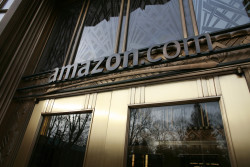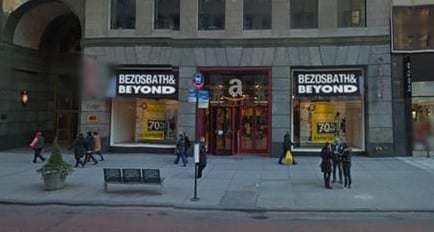 Amazon is about to expand its school bookstore empire beyond running unstores for several US universities.
Amazon is about to expand its school bookstore empire beyond running unstores for several US universities.
Capital New York reports that the NYC Board of Education is about to award Amazon a five-year, $64.5 million contract for the retailer to run an ebook marketplace where public schools would buy ebooks.
The contract will initially last three years and cost $30 million, and there’s also an option to renew for an additional two years, for an additional $34.5 million. (The odd accounting comes from the plan to phase the marketplace in over the first three years, building up to the third year where it is projected to cost $17.2 million.)
The contract is waiting on a formal vote at a Panel for Educational Policy meeting in late August before it is officially awarded, but it is expected to be approved. It will take affect this fall.
According to the RFA, this contract will make Amazon the NYC DOE’s primary distributor for digital textbooks and related educational materials. Amazon will distribute both contracted materials such as the standard textbooks and curricula, and it will also sell ebooks and other content to schools.
The RFA is less than clear on the technical details, but it does note that the marketplace will leverage Amazon’s three-year-old Whispercast platform. Whispercast was developed so educators could manage the content and devices used in their schools. It was recently updated with better license management, more admin options, and the option to buy apps and ebooks in bulk and distribute them remotely.
The DOE had been looking for a vendor since March 2013, and choose Amazon out of a field of fourteen proposals. Amazon’s offer is described as the best by far, and is expected to save the city money. DOE spokesperson Devora Kaye said that the deal was "fiscally savvy for the City—the DOE is not paying for the development of the new marketplace, and the robust competition and our procurement process will ensure that we continue to get the best prices for school texts."
image by Jim Bauer, flickingerbrad


![AmazonatPurdue_1[1]](https://the-digital-reader.com/wp-content/uploads/2015/02/AmazonatPurdue_11-250x166.jpg)






![14039827593_56b77e8bc6[1]](https://the-digital-reader.com/wp-content/uploads/2015/02/14039827593_56b77e8bc61-500x320.jpg)


![AmazonatPurdue_1[1]](https://the-digital-reader.com/wp-content/uploads/2015/02/AmazonatPurdue_11-500x333.jpg)